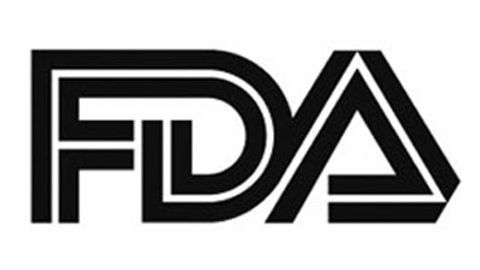FDA Grants Priority Review to sBLA for Adjuvant Pembrolizumab in RCC
The FDA has accepted a supplemental biologics license application for adjuvant pembrolizumab and granted it priority review as a treatment for patients with renal cell carcinoma at intermediate-high or high risk of recurrence following nephrectomy, or following nephrectomy and resection of metastatic lesions.

The FDA has accepted a supplemental biologics license application (sBLA) for adjuvant pembrolizumab (Keytruda) and granted it priority review as a treatment for patients with renal cell carcinoma (RCC) at intermediate-high or high risk of recurrence following nephrectomy, or following nephrectomy and resection of metastatic lesions, according to a press release issued by Merck.1
Findings from the pivotal phase 3 KEYNOTE-564 trial of adjuvant pembrolizumab support the sBLA. In the study, a statistically significant and clinically meaningful improvement in disease-free survival (DFS) was achieved with adjuvant pembrolizumab treatment compared with placebo in patients with RCC.
“The acceptance of our application demonstrates the progress we are making in earlier lines and earlier stages of certain cancers across our oncology portfolio,” said Scot Ebbinghaus, MD, vice president, clinical research, Merck Research Laboratories. “We look forward to working with the FDA towards the goal of bringing the first adjuvant immunotherapy option to appropriate patients with renal cell carcinoma in the United States.”
The most recent results from the double-blind, multicenter, phase 3 KEYNOTE-564 trial were presented during the 2021American Society of Clinical Oncology (ASCO) Annual Meeting. A total of 984 patients were treated during the study including 488 in the pembrolizumab arm versus 496 in the placebo arm after 1:1 randomization. All patients enrolled had histologically confirmed disease, underwent nephrectomy within 12 weeks of randomization in the study, had no prior systemic therapy, had an ECOG performance status of 0 or 1, and had tissue samples available for PD-L1 assessment.2
At a median follow-up of approximately 24 months, the median DFS was not reached with either pembrolizumab as per investigator assessment (HR, 0.68, 95% CI, 0.53-0.87; P = .0010). Pembrolizumab had a 12-month DFS rate of 85.7% in the study compared with 76.2% in the placebo arm. At 24 months, the DFS rate with pembrolizumab was 77.3% compared with 68.1% in the placebo arm. Overall, there was a 32% reduction in the risk of disease recurrence or death achieved with pembrolizumab.
Patients were stratified by metastatic stage of either M0 or M1 NED, specifically. Although patients at both metastatic stages favored pembrolizumab over placebo, the M1 NED subgroup had more DFS events on treatment with pembrolizumab (HR, 0.72; 95% CI,0.57-0.96) compared with the M0 subgroup (HR, 0.29; 95% CI, 0.12-0.69).
Interim overall survival (OS) outcomes were reported during the 2021 ASCO Annual Meeting presentation as well. At a median follow-up of 24.1 months (range, 14.9-41.5), the median OS was not reached in either arm (HR, 0.54; 95% CI, 0.30-0.96; P =.0164). At 12 months, the OS rate was 98.6% with pembrolizumab versus 98;0% with placebo, and at 24 months the OS rate was 96.6% versus 93.5%, respectively.
Safety results from KEYNOTE-564 showed that treatment-related AEs (TRAEs) occurred in 79.1% of the pembrolizumab arm compared with 53.4% of the placebo-treated patients. Grade 3 to 5 TRAEs were seen in 18.9% of patients treated with pembrolizumab versus 1.2% of those on placebo. There were no TRAEs that led to death in either arm, and the safety profile of pembrolizumab in this study was consistent with prior data.
Pembrolizumab is a monoclonal antibody that blocks the PD-1/PD-L1 pathway. The agent already has FDA approval for use in combination with axitinib (Inlyta) for the frontline treatment of patients with advanced RCC. The BLA aims to also bring pembrolizumab as monotherapy to the adjuvant setting.1
For a decision on whether to approve pembrolizumab for the adjuvant treatment of patients with RCC at intermediate-high or high risk of recurrence following nephrectomy or following nephrectomy and resection of metastatic lesions, the FDA has set a Prescription Drug User Fee Act date of December 10, 2021.
References:
1. FDA Grants priority review to Merck’s supplemental biologics license application for Keytruda® (pembrolizumab) as adjuvant therapy in certain patients with renal cell carcinoma (RCC) following surgery. News release. Merck. August 10, 2021. Accessed August 10, 2021. https://bit.ly/2XeKWpD
2. Choueiri TK, Tomczak P, Park SH, et al. Pembrolizumab vs placebo as post-nephrectomy adjuvant therapy for patients with renal cell carcinoma: randomized, double-blind, phase 3 KEYNOTE-564 study. J Clin Oncol. 2021;39(suppl 15):LBA5.
Enhancing Precision in Immunotherapy: CD8 PET-Avidity in RCC
March 1st 2024In this episode of Emerging Experts, Peter Zang, MD, highlights research on baseline CD8 lymph node avidity with 89-Zr-crefmirlimab for the treatment of patients with metastatic renal cell carcinoma and response to immunotherapy.
Listen
Beyond the First-Line: Economides on Advancing Therapies in RCC
February 1st 2024In our 4th episode of Emerging Experts, Minas P. Economides, MD, unveils the challenges and opportunities for renal cell carcinoma treatment, focusing on the lack of therapies available in the second-line setting.
Listen